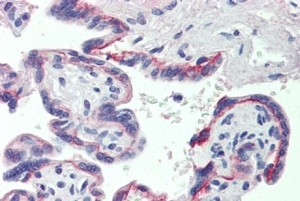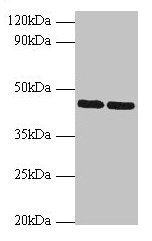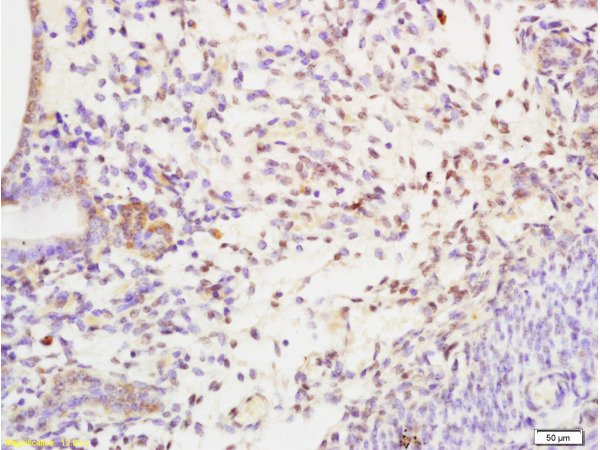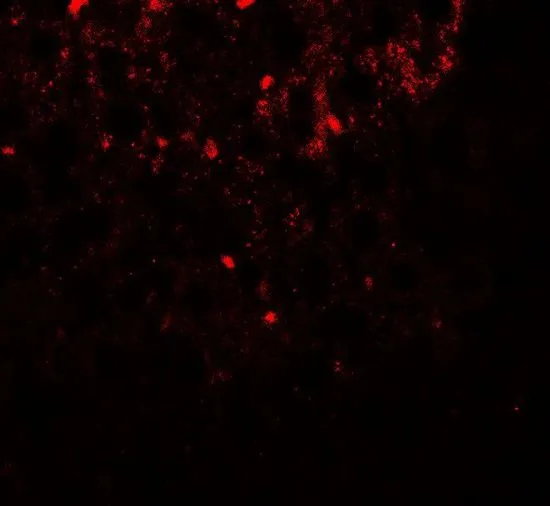![IHC-P analysis of human testicular carcinoma tissue using GTX35082 SHBG antibody [SPM605]. IHC-P analysis of human testicular carcinoma tissue using GTX35082 SHBG antibody [SPM605].](https://www.genetex.com/upload/website/prouct_img/normal/GTX35082/GTX35082_20200115_IHC-P_1206_w_23060801_897.webp)
IHC-P analysis of human testicular carcinoma tissue using GTX35082 SHBG antibody [SPM605].
SHBG antibody [SPM605]
GTX35082
ApplicationsFlow Cytometry, ImmunoFluorescence, ImmunoCytoChemistry, ImmunoHistoChemistry, ImmunoHistoChemistry Paraffin
Product group Antibodies
ReactivityHuman
TargetSHBG
Overview
- SupplierGeneTex
- Product NameSHBG antibody [SPM605]
- Delivery Days Customer9
- Application Supplier NoteICC/IF: 1-2microg/ml. IHC-P: 1-2microg/ml for 30 minutes at RT. FCM: 1-2microg/106 cells. *Optimal dilutions/concentrations should be determined by the researcher.Not tested in other applications.
- ApplicationsFlow Cytometry, ImmunoFluorescence, ImmunoCytoChemistry, ImmunoHistoChemistry, ImmunoHistoChemistry Paraffin
- CertificationResearch Use Only
- ClonalityMonoclonal
- Clone IDSPM605
- Concentration0.2 mg/ml
- ConjugateUnconjugated
- Gene ID6462
- Target nameSHBG
- Target descriptionsex hormone binding globulin
- Target synonymsABP, SBP, TEBG, sex hormone-binding globulin, sex steroid-binding protein, testis-specific androgen-binding protein, testosterone-binding beta-globulin, testosterone-estradiol-binding globulin, testosterone-estrogen-binding globulin
- HostMouse
- IsotypeIgG1
- Protein IDP04278
- Protein NameSex hormone-binding globulin
- Scientific DescriptionThis gene encodes a steroid binding protein that was first described as a plasma protein secreted by the liver but is now thought to participate in the regulation of steroid responses. The encoded protein transports androgens and estrogens in the blood, binding each steroid molecule as a dimer formed from identical or nearly identical monomers. Polymorphisms in this gene have been associated with polycystic ovary syndrome and type 2 diabetes mellitus. Alternative splicing results in multiple transcript variants. [provided by RefSeq, Jan 2014]
- ReactivityHuman
- Storage Instruction-20°C or -80°C,2°C to 8°C
- UNSPSC41116161






![IHC-P analysis of human testicular carcinoma tissue using GTX35081 SHBG antibody [SHBG/245].](https://www.genetex.com/upload/website/prouct_img/normal/GTX35081/GTX35081_20200115_IHC-P_1207_w_23060801_305.webp)


